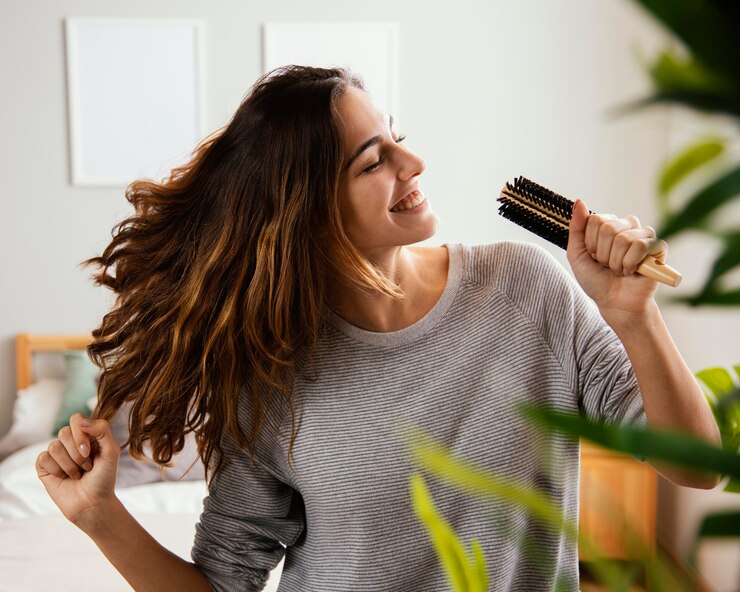
Your diet plays a major role in how your body functions. The food choices you make can either improve your overall health or lead to various health problems. While many people know that eating the right foods can help with building muscle, reducing weight, and preventing diseases, not everyone realizes that diet can also influence the health of your hair. If you’re dealing with hair loss or simply looking to keep your hair thick and healthy, adjusting your eating habits can make a huge difference.
What you eat affects not only your physical well-being but also your mental health. A healthy diet offers a wide range of benefits, such as more energy, a stronger immune system, and improved longevity. However, when your diet lacks important nutrients, your health can be negatively impacted. Poor eating habits are linked to conditions like heart disease, high blood pressure, stroke, and even hair loss.
So, how exactly does what you eat cause hair loss? To grow strong, healthy hair, your body needs certain vitamins and minerals. These nutrients are responsible for building hair cells, stimulating hair follicles, and repairing damage. Without enough of these key nutrients, your hair may start to thin or fall out, along with facing other health complications.
You could be missing out on these essential nutrients for different reasons, such as following a low-calorie plan, eating unhealthy foods, or experiencing stress. Sometimes, fad diets that cut out entire food groups can also be to blame. To avoid negative impacts from restrictive eating plans, it’s important to track whether you’re getting the right balance of macro and micronutrients.
Now that you understand how important your diet is for both your general health and the health of your hair, you might be wondering what foods you should prioritize. To support healthy hair growth, focus on getting plenty of iron, protein, zinc, biotin, vitamin B12, vitamin C, and vitamin A. These nutrients can be found in delicious and easy-to-incorporate foods such as leafy greens, fatty fish, nuts, seeds, eggs, and fruits.
For example, you could create a nutrient-packed meal like a fresh spinach salad topped with grilled salmon, or whip up a smoothie made with kale, chia seeds, and mixed berries. These combinations make it simple to include more hair-boosting nutrients in your diet. Whether you follow a vegan, keto, or any other food philosophy, these versatile food options offer something for everyone. If your diet is more restrictive, you might also consider adding supplements to make sure you’re not missing out on crucial nutrients.
In addition to eating better, there are other natural solutions to help with hair growth if you’re looking for an extra boost. One effective method is Low-Level Light Therapy (LLLT), which stimulates hair growth by rejuvenating old hair cells and blocking DHT, a hormone linked to hair loss. LLLT is a non-invasive, science-backed treatment option to support hair restoration.
Another option is to try hair loss vitamins, particularly if you have a nutrient deficiency. These vitamins often contain ingredients like collagen, horsetail extract, and stinging nettle root, which work to strengthen and restore hair. Supplements can be especially helpful for people who follow diets that eliminate specific food groups.
Hair loss can feel overwhelming, but it doesn’t have to be a permanent issue. By making thoughtful changes to your diet and lifestyle, you can support natural hair regrowth and improve your overall health. Focus on enjoying the healthy foods you’re adding to your meals rather than worrying about what you’re cutting out. Restoring both your health and your hair is a gradual process, but the long-term benefits are well worth the effort.